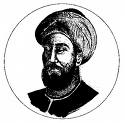ABOUT US CIDPUSA.ORG
CIDP unified theory of medicine. One world disease process;

ABU AL-QASIM AL-ZAHRAWIE.)
Abul Qasim Khalaf ibn al-Abbas al-Zahrawi (known in the west as Abulcasis) was born in 936 C.E. in Zahra in the neighbourhood of Cordova. He became one of the most renowned surgeons of the Muslim era and was physician to King Al-Hakam-II of Spain. After a long medical career, rich with significant original contribution, he died in 1013 C.E.
He is best known for his early and original breakthroughs in surgery as well as for his famous Medical Ecyclopaedia called Al-Tasrif, which is composed of thirty volumes covering different aspects of medical science. The more important part of this series comprises three books on surgery, which describe in detail various aspects of surgical treatment as based on the operations performed by him, including cauterization, removal of stone from the bladder, dissection of animals, midwifery, stypics, and surgery of eye, ear and throat. He perfected several delicate operations, including removal of the dead foetus and amputation.
Al-Tasrif was first translated by Gherard of Cremona into Latin in the Middle Ages. It was followed by several other editors in Europe. The book contains numerous diagrams and illustrations of surgical instruments, in use or developed by him, and comprised a part of the medical curriculum in European countries for many centuries. Contrary to the view that the Muslims fought shy of surgery, Al-Zahrawi's Al-Tasrif provided a monumental collection for this branch of applied science.
Al-Zahrawi was the inventor of several surgical instruments, of which three are notable: (i) an instrument for internal examina- tion of the ear, (ii) an instrument for internal inspection of the urethra, and (iii) and instrument for applying or removing foreign bodies from the throat. He specialized in curing disease by cauterization and applied the technique to as many as 50 different operations.
In his book Al-Tasrif, Al-Zahrawi has also discussed the preparation of various medicines, in addition to a comprehensive account of surgical treatment in specialized branches, whose modern counterparts are E.N.T., Ophthalmology, etc. In connection with the preparation of medicines, he has also described in detail the application of such techniques as sublimation and decantation. Al-Zahrawi was also an expert in dentistry, and his book contains sketches of various instruments used thereof, in addition to a description of various important dental operations. He discussed the problem of non-aligned or deformed teeth and how to rectify these defects. He developed the technique of preparing artificial teeth and of replacement of defective teeth by these. In medicine, he was the first to describe in detail the unusual disease, haemophelia.
There can be no doubt that Al-Zahrawi influenced the field of medicine and surgery very deeply and the principles laid down by him were recognized as authentic in medical science, especially surgery, and these continued to influence the medical world for five centuries. According to Dr. Cambell (History of Arab Medicine), his principles of medical science surpassed those of Galen in the European medical curriculum.
Al-Tasreef contains about 200 surgical instruments clearly described and illustrated, many of which were of his own design, for he was a great advocate of creativity and invention.His book is widely acclaimed to be the first illustrated treatise in the history of surgery. It is lucidly written, unambiguous and is an enjoyment to read even nowadays.
The first 56 chapters of al-Tasreef deal with cautery, but we will confine ourselves to very few examples, not only for their historical importance but also to dissipate many illusions which link all progress in medicine with the last 100 years.
LINKS CIDPUSA
- Avi Cenna
- Hippocratese
- biography of hakim abu al.
- Benefits of marriage
-
Impotence guide
-
Breast Lymph drainage
-
Bras causing breast cancer
-
Breast Size and disease
-
Fat Guide
-
Multifocal neuropathy
-
Hair rejuvenation
-
Fatty acids in diseases
-
Diabetes
-
Burning Feet Home
-
Vitiligo
-
Miracle ITP
-
Cholesterol drugs & Bleeding
-
What is autoimmune
-
Toxic Baby products
-
cancer survivor
-
Tomato as a medicine
-
New Vaccine
-
Infants and women omega-3
-
Selenium
-
Basil
-
Bay leaves
-
Eliminate insulin implants
-
Sugar treatment
-
Heart FAILURE
-
Low fat diet consequences
-
test
- E-Book; treatment guidelines for autoimmune diseases
- Oils for health
- Walnut oil
- SESAME SEED OIL
- Canola unhealthy
- Cocunut Oil
- Eliminate insulin implants
- Services Page
- Feet Home
- Women Heart attack
- Autonomic Small Fiber
- Printer friendly pag
Credits: CIDPUSA.ORG Library 70